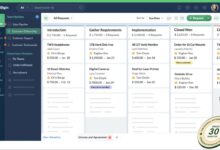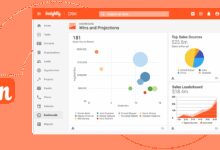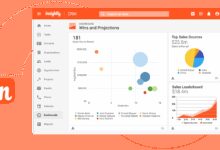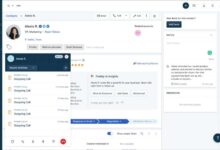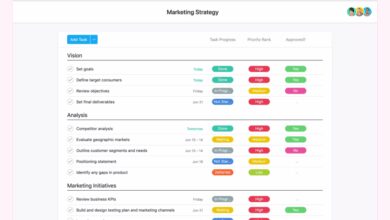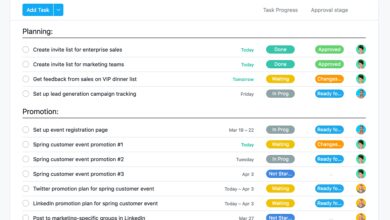CRM Reviews for Small Business: 7 Best Tools to Skyrocket Growth
Looking for the best CRM reviews for small business? You’re not alone. Choosing the right customer relationship management tool can make or break your growth. Let’s explore the top platforms that deliver real results—without breaking the bank.
Why CRM Reviews for Small Business Matter

For small businesses, every dollar counts. Investing in a CRM (Customer Relationship Management) system is no different. That’s why reading detailed CRM reviews for small business is essential before making a decision. These reviews help you understand which tools offer the best value, ease of use, scalability, and integration options tailored to small teams with limited resources.
What Is a CRM and Why Do You Need One?
A CRM is software that helps businesses manage interactions with current and potential customers. It centralizes customer data, tracks communication, automates follow-ups, and streamlines sales, marketing, and customer service processes. For small businesses, this means less time spent on manual tasks and more time building relationships.
- Stores contact information, purchase history, and communication logs
- Tracks leads through the sales pipeline
- Automates email campaigns and reminders
- Improves customer retention and satisfaction
According to Salesforce research, high-performing sales teams are 2.3x more likely to use CRM technology than underperformers. This shows how impactful a well-chosen CRM can be—even for small operations.
How CRM Reviews Help You Avoid Costly Mistakes
Not all CRMs are created equal. Some are too complex, others lack essential features, and a few come with hidden costs. Reading honest CRM reviews for small business helps you avoid these pitfalls. Real user feedback reveals pain points like poor customer support, clunky interfaces, or limited customization—issues that aren’t always apparent from marketing materials.
“I chose a CRM based on price alone and wasted six months trying to make it work. After reading unbiased CRM reviews for small business, I switched to a better fit and doubled my sales in three months.” — Sarah T., Small Business Owner
Reviews also highlight which platforms offer strong onboarding, responsive support, and mobile accessibility—critical factors when you don’t have a dedicated IT team.
Top 7 CRM Platforms: In-Depth Reviews for Small Business
After analyzing dozens of platforms, user feedback, pricing models, and feature sets, we’ve narrowed down the top 7 CRM solutions that consistently rank high in CRM reviews for small business. Each one offers a unique blend of affordability, functionality, and ease of use.
1. HubSpot CRM
HubSpot CRM is often hailed as the gold standard for small businesses, especially those focused on inbound marketing and sales automation. It’s completely free to start, making it one of the most accessible options on the market.
- Free forever plan with robust features
- Seamless integration with email, calendar, and social media
- Intuitive interface ideal for non-tech users
- Advanced automation and deal tracking in paid tiers
The platform excels in lead nurturing, offering tools like email sequencing, live chat, and meeting scheduling. As your business grows, HubSpot scales with you through its paid Marketing, Sales, and Service Hubs. According to G2 reviews, users praise its ease of use and powerful free tier, though some note limitations in reporting without upgrades.
“HubSpot CRM transformed how we manage leads. The free version gave us everything we needed to get started, and the upgrade path was smooth.”
2. Zoho CRM
Zoho CRM is a powerhouse for small businesses that need deep customization without high costs. It offers AI-driven insights through Zia, its virtual assistant, and supports complex sales workflows.
- Highly customizable pipelines and automation
- AI-powered sales forecasting and suggestions
- Strong mobile app for on-the-go access
- Integration with over 40 Zoho apps and third-party tools
Pricing starts at $14/user/month, making it affordable for growing teams. One standout feature is its multichannel communication—email, phone, social, and live chat—all within one dashboard. As noted in Capterra CRM reviews for small business, users appreciate its flexibility but sometimes find the interface overwhelming at first.
3. Salesforce Essentials
Salesforce, the industry leader, offers a simplified version called Essentials specifically designed for small businesses with up to 10 users. It brings enterprise-grade functionality to smaller teams.
- Customizable dashboards and reports
- Automated data capture and lead assignment
- Integration with email, calendar, and third-party apps
- Mobile-first design with offline access
Priced at $25/user/month, it’s more expensive than some competitors but delivers unmatched scalability. For businesses planning rapid growth, Salesforce Essentials is a smart long-term investment. As one TrustRadius review states, “It’s not the cheapest, but it’s the most future-proof CRM we’ve used.”
4. Freshsales (by Freshworks)
Freshsales stands out for its built-in phone, email, and chat capabilities, making it ideal for sales-heavy small businesses. It’s designed to be user-friendly while packing advanced features like AI-based lead scoring.
- Native phone and email integration
- Visual deal pipeline with drag-and-drop functionality
- AI-powered insights for prioritizing leads
- Free plan available for up to 3 users
The free plan includes 10,000 contacts and 100MB storage, which is generous for startups. Paid plans start at $15/user/month. Users frequently mention in CRM reviews for small business that Freshsales feels intuitive and reduces the need for third-party tools.
5. Pipedrive
Pipedrive is built for sales-focused small businesses that want a visual, pipeline-driven approach. Its strength lies in simplicity and clarity—perfect for teams that want to focus on closing deals rather than managing software.
- Drag-and-drop sales pipeline
- Activity reminders and goal tracking
- Strong automation and email integration
- Mobile app with full functionality
Priced from $14.90/user/month, Pipedrive is competitively priced. According to GetApp reviews, users love its visual clarity and ease of onboarding. Some note that advanced reporting requires higher-tier plans.
“Pipedrive made our sales process transparent. We went from chaos to clarity in two weeks.”
6. Insightly
Insightly is a great choice for small businesses that need project management alongside CRM. It bridges the gap between sales and operations, making it ideal for service-based companies like consultants, contractors, and agencies.
- Project and task management integrated with CRM
- Customer relationship timelines
- Workflow automation and email tracking
- Supports up to 50,000 contacts on the lowest paid plan
Pricing starts at $29/user/month, which is on the higher end, but justified by its dual functionality. CRM reviews for small business often highlight Insightly’s ability to manage both client relationships and deliverables in one place.
7. Agile CRM
Agile CRM offers an all-in-one solution combining sales, marketing, and service tools. It’s particularly popular among startups and solopreneurs due to its low entry cost and wide feature set.
- Free plan for up to 10 users
- Marketing automation, telephony, and helpdesk included
- Website tracking and lead scoring
- Mobile app with full CRM access
The free plan is feature-rich, though limited to 1,000 contacts. Paid plans start at $9.99/user/month. Some users report performance issues at scale, but for early-stage businesses, Agile CRM delivers exceptional value. As one reviewer on Software Advice put it, “It’s like having five tools in one, without the monthly bill shock.”
Key Features to Look for in CRM Reviews for Small Business
When reading CRM reviews for small business, it’s important to focus on features that align with your specific needs. Not every tool needs AI or advanced analytics—sometimes simplicity is king. Here are the most critical features to evaluate:
User-Friendly Interface
A CRM should save time, not create frustration. Look for platforms with clean dashboards, intuitive navigation, and minimal learning curves. If your team resists using the system, even the most powerful CRM will fail.
- Drag-and-drop functionality
- Customizable home screens
- Onboarding tutorials and tooltips
HubSpot and Pipedrive are often praised in CRM reviews for small business for their ease of use. Avoid systems that require extensive training or technical knowledge unless you have the resources to support them.
Automation and Workflow Tools
Automation is a game-changer for small teams. It allows you to set up email sequences, task reminders, and follow-up triggers that run automatically, freeing up time for high-value activities.
- Email automation and templates
- Task and activity scheduling
- Lead assignment rules
- Custom workflows based on triggers
Zoho CRM and Agile CRM offer some of the most robust automation at affordable prices. However, ensure the automation tools are easy to set up—complex logic builders can become a burden.
Mobile Accessibility
Small business owners are rarely at a desk. Whether you’re meeting clients, attending events, or working remotely, mobile access to your CRM is non-negotiable.
- Full-featured mobile apps (iOS and Android)
- Offline access and sync
- Mobile-specific features like GPS check-ins
Salesforce Essentials and Freshsales lead in this area, offering mobile experiences that mirror their desktop versions. Check CRM reviews for small business to see real-world feedback on app performance and reliability.
How to Evaluate CRM Reviews for Small Business: A Step-by-Step Guide
Not all reviews are created equal. Some are biased, outdated, or written by users with very different needs. To get the most value from CRM reviews for small business, follow this structured approach:
1. Identify Your Business Needs
Before reading a single review, define what you need from a CRM. Ask yourself:
- Do you need sales pipeline management?
- Is marketing automation important?
- Do you handle customer service in-house?
- How many users will access the system?
- What’s your budget?
Your answers will help you filter reviews and focus on platforms that match your use case.
2. Check Review Sources for Credibility
Use trusted third-party platforms like G2, Capterra, TrustRadius, and Software Advice. These sites verify user identities and prevent fake reviews. Avoid relying solely on vendor websites or affiliate blogs that may exaggerate benefits.
- Look for verified purchase badges
- Check review dates—older reviews may not reflect current versions
- Read both positive and negative feedback
For example, a 2023 review on G2 might highlight a new AI feature, while a 2020 review won’t mention it at all.
3. Analyze Patterns, Not Outliers
One angry review about slow support doesn’t mean a CRM is bad—unless dozens say the same. Look for recurring themes in CRM reviews for small business:
- Multiple users complaining about crashes? That’s a red flag.
- Consistent praise for onboarding? That’s a green light.
- Several mentions of poor mobile performance? Investigate further.
Patterns reveal real product strengths and weaknesses.
Integration Capabilities: Why They Matter in CRM Reviews for Small Business
A CRM doesn’t exist in a vacuum. It needs to work with your email, calendar, accounting software, and other tools. Integration capabilities are a critical factor often highlighted in CRM reviews for small business.
Email and Calendar Sync
The ability to sync with Gmail, Outlook, or Google Calendar is essential. It allows you to log emails, schedule meetings, and track communication without switching apps.
- HubSpot and Freshsales offer seamless two-way sync
- Zoho integrates natively with its own email suite
- Pipedrive supports Gmail and Outlook with add-ons
Without this, you’ll lose valuable customer interaction data, defeating the purpose of a CRM.
Accounting and Payment Tools
For small businesses, connecting your CRM to accounting software like QuickBooks, Xero, or Stripe can streamline invoicing and payment tracking.
- Zoho CRM integrates with Zoho Books and other platforms
- Insightly supports QuickBooks Online
- Salesforce offers AppExchange for custom integrations
CRM reviews for small business often highlight integration ease—or frustration—so pay close attention to user experiences.
Marketing and E-commerce Platforms
If you run digital campaigns or sell online, integration with tools like Mailchimp, Shopify, or WordPress is crucial.
- HubSpot offers native integrations with Shopify and WordPress
- Agile CRM connects with WooCommerce and social media ads
- Pipedrive has a marketplace for 300+ integrations
These connections allow you to track customer journeys from ad click to purchase, enabling better personalization and ROI measurement.
Pricing Models: What CRM Reviews for Small Business Don’t Always Tell You
While CRM reviews for small business often mention pricing, they don’t always expose hidden costs or scalability issues. Understanding the full cost of ownership is vital.
Free vs. Paid Plans: What’s Really Included?
Many CRMs offer free plans (HubSpot, Freshsales, Agile CRM), but they come with limitations:
- Number of contacts or users
- Limited automation or reporting
- No phone support
- Branded emails or limited storage
For example, HubSpot’s free plan is powerful, but advanced reporting and custom dashboards require a paid upgrade. Always read the fine print before committing.
Per-User vs. Flat-Rate Pricing
Some CRMs charge per user (Salesforce, Zoho), while others offer flat-rate plans (Agile CRM’s free tier). For small teams, per-user pricing can add up quickly.
- 3 users at $25/user = $75/month
- A flat $29/month might be cheaper
Consider your growth plans. If you expect to hire, a per-user model could become expensive. Flat-rate or tiered pricing offers more predictability.
Hidden Costs: Training, Add-Ons, and Migration
The listed price is rarely the total cost. Additional expenses include:
- Onboarding and training time
- Paid integrations or premium apps
- Data migration services
- Customization and consulting
CRM reviews for small business sometimes mention these, but not always. Factor them into your budget to avoid surprises.
Real-World Success Stories: How Small Businesses Benefit from CRM Reviews
The true value of CRM reviews for small business lies in real-world outcomes. Let’s look at a few case studies where the right CRM made a measurable difference.
Case Study 1: Local Marketing Agency Boosts Client Retention
A 5-person digital marketing agency in Austin struggled with client follow-ups and project tracking. After reading CRM reviews for small business, they chose Insightly for its project management features.
- Integrated client campaigns with task deadlines
- Automated monthly check-in emails
- Reduced missed deadlines by 70%
- Increased client retention by 40% in 6 months
“We finally have a system that reflects how we actually work,” said the founder.
Case Study 2: E-commerce Startup Scales with HubSpot
An online boutique selling handmade goods started with spreadsheets. As orders grew, they switched to HubSpot CRM after reading glowing CRM reviews for small business.
- Automated post-purchase thank-you emails
- Segmented customers by purchase history
- Launched targeted email campaigns
- Doubled repeat customer rate in 4 months
The free plan covered their needs initially, and they upgraded only when revenue justified it.
Case Study 3: B2B Consultant Closes More Deals with Pipedrive
A freelance business consultant was losing track of leads across emails and notebooks. He adopted Pipedrive after seeing its visual pipeline in CRM reviews for small business.
- Created a 5-stage sales funnel
- Set automated follow-up reminders
- Tracked deal probability and expected revenue
- Increased conversion rate from 20% to 38%
“I went from feeling overwhelmed to having full visibility,” he said. “It paid for itself in one closed deal.”
What are the best CRM reviews for small business?
The best CRM reviews for small business come from trusted third-party platforms like G2, Capterra, TrustRadius, and Software Advice. Look for recent, verified reviews that discuss ease of use, customer support, pricing transparency, and real-world performance.
Which CRM is best for a small business just starting out?
For startups, HubSpot CRM and Freshsales are excellent choices due to their free plans, ease of use, and scalability. Both offer essential features without upfront costs, making them ideal for testing and early growth.
Are free CRM tools reliable for small businesses?
Yes, many free CRM tools are highly reliable for small businesses. HubSpot, Freshsales, and Agile CRM offer free versions with robust features. However, be aware of limitations in contacts, automation, and support. They’re perfect for startups but may require upgrades as you grow.
How much should a small business expect to spend on a CRM?
Small businesses can expect to spend between $0 and $50 per user per month. Free plans are available, while mid-tier CRMs like Zoho or Pipedrive cost $14–$25/user. Enterprise options like Salesforce start at $25/user but offer greater scalability.
Can a CRM help with customer service and support?
Absolutely. Many CRMs, including Freshsales, Agile CRM, and HubSpot, include helpdesk, ticketing, and live chat features. These allow small businesses to manage customer inquiries, track issues, and improve response times—all from one platform.
Choosing the right CRM is one of the most impactful decisions a small business can make. By leveraging detailed CRM reviews for small business, you gain insights into real user experiences, hidden costs, and long-term value. Platforms like HubSpot, Zoho, and Pipedrive consistently earn high marks for balancing affordability, functionality, and ease of use. Focus on your specific needs—whether it’s sales automation, marketing integration, or customer service—and let the reviews guide you to a solution that grows with your business. The right CRM isn’t just a tool; it’s a strategic partner in your success.
Further Reading:

